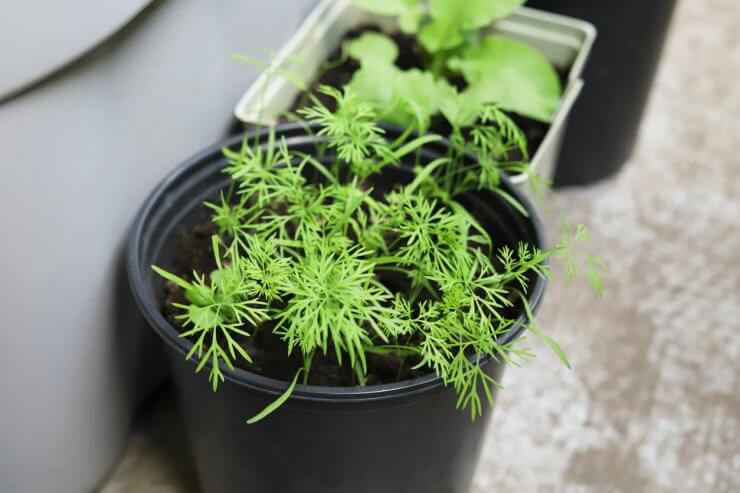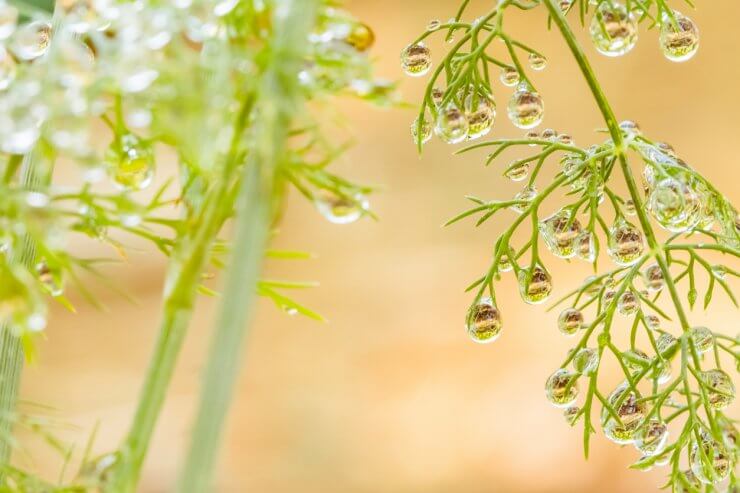
Dill growing in a garden pot
Dill can flourish in containers. That’s lucky, because as a culinary herb, you’ll want to have access to fresh dill all year round. Dried dill is better than no dill, but most cooks believe fresh dill has superior flavor. The most important factor is having a pot that’s deep enough to accommodate the taproot—a minimum of 12 inches. If you have a deep container, sunny window, healthy soil, and consistent water, your container-grown dill will turn out fine!
Light
Dill needs six to eight hours of sunlight each day to flourish. If they’re indoors, they should be in a window that faces south or southwest. The light should be direct, not filtered. If you don’t have enough access to daylight indoors, you can supplement with grow lights. A little less than optimal light conditions can work for container-grown dill, but your plant will not be as bushy.
If you live in a temperate zone with warm summers and cold winters, your dill can spend spring, summer, and part of fall outside. Just don’t leave it outside if there’s a chance of temperatures dropping below freezing. You’ll want to phase plants into indoor living over the course of a month to avoid shocking their system.
Water

Water droplets on dill plant
Keep your dill plant’s soil moist, but not soggy. In general, plan to water your container plants when they start to dry out, about once every week or two, but don’t let them dry out completely. Make sure the container your plant is growing in has adequate drainage, so the root is never standing in water. Check the soil’s moisture level periodically. You can use something as basic as a pencil to poke down into the soil to see where the moisture is.
In the wintertime, when humidity is lower, you may need to provide a little extra moisture for the air. If you put the container on top of a layer of pebbles or marbles, you can add water to that layer. You’ll be providing extra moisture for the air and improving airflow for the plant.
Soil
For a happy, healthy dill plant, use an all-purpose commercial soil mix or a soilless mix. Some gardeners prefer to use soil from their garden, but that can introduce any number of pathogens to your young plant.
When it comes to using fertilizer, add liquid fertilizer at half strength when the new plant is a few inches tall, then about every four weeks. If you prefer organic to chemical fertilizer, side dress the plant with compost, compost tea, or aged manure once or twice during the growing season.
Have you grown dill in containers? Do you put the plants outside for part of the year, or grow them indoors year-round? Please tell us about your successes and challenges growing dill plants in containers.


 Previous
Previous

